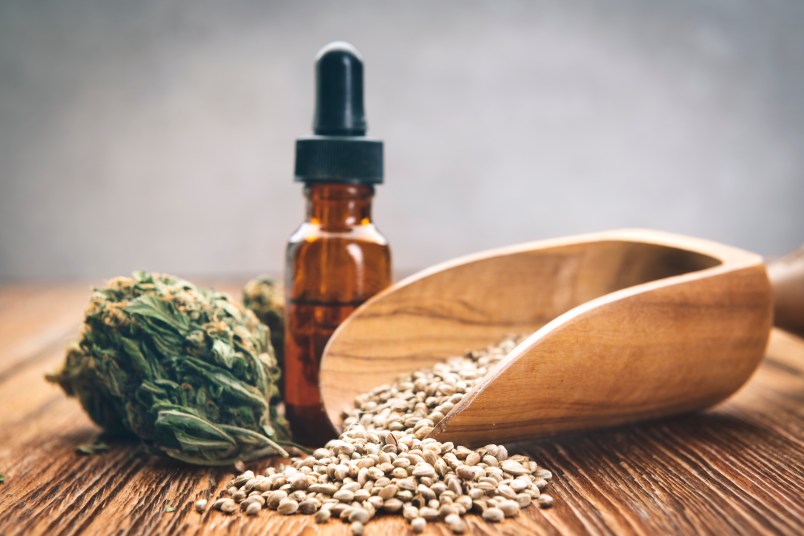Investigating the Advantages of Hemp Seed Oil Tinctures
In this blog post, we will delve into the world of hemp seed oil tinctures, exploring their benefits and how they can be a valuable addition to your wellness routine…

Introduction:
Hemp seed oil has gained significant popularity in recent years for its potential health benefits. One of the most popular forms of consuming hemp seed oil is through tinctures.
In this blog post, we will delve into the world of hemp seed oil tinctures, exploring their benefits and how they can be a valuable addition to your wellness routine.
What is Hemp Seed Oil?
Before we dive into the specifics of hemp seed oil tinctures, let’s understand what hemp seed oil is. Hemp seed oil is extricated from the seeds of the hemp plant (Marijuana sativa).
Unlike Cannabidiol oil, which is extracted from the leaves, flowers, and stalks, hemp seed oil is derived solely from the seeds. It contains a rich profile of nutrients, including omega-3 and omega-6 fatty acids, vitamins, and minerals.
What Is Hemp Seed Oil Tincture Used For?
Hemp seed oil tincture is commonly used for its potential health benefits. Rich in omega-3 and omega-6 fatty acids, vitamins, and minerals, it may support overall well-being. The tincture form allows for easy administration under the tongue or incorporation into food and beverages.
Users often seek it for its potential to nourish the skin, promote heart health by regulating cholesterol levels, and interact with the endocannabinoid system to alleviate stress and anxiety. Its versatility makes it a popular choice for those looking to enhance their daily health regimen through a natural and convenient supplement.
Hemp Seed Oil Tincture Advantage
Tinctures are a popular way to consume hemp seed oil due to their versatility and ease of use. Tinctures involve steeping hemp seeds in high-proof alcohol or a solvent like glycerin to extract the beneficial compounds.
This method results in a concentrated liquid form that can be easily administered under the tongue or added to food and beverages.
Nutrient Powerhouse:
Hemp seed oil is renowned for its nutritional content. It is rich in omega-3 and omega-6 unsaturated fats, which are fundamental for by and large well-being. These fatty acids play a crucial role in supporting brain function, reducing inflammation, and maintaining healthy skin.
Balancing Endocannabinoid System:
The human body has an endocannabinoid system (ECS), which plays a vital role in maintaining homeostasis. Hemp seed oil contains cannabinoids that interact with the ECS receptors, helping to regulate various bodily functions, including mood, sleep, and appetite.
Skin Health:
The omega fatty acids present in hemp seed oil have moisturizing and anti-inflammatory properties, making it a fantastic addition to your skincare routine. Tinctures allow for easy topical application, providing nourishment to the skin and helping to alleviate conditions like dryness and irritation.
Heart Health:
Hemp seed oil may contribute to heart health by promoting healthy cholesterol levels and reducing the risk of cardiovascular issues. The tincture form ensures a convenient way to incorporate this heart-healthy oil into your daily routine.
Stress and Anxiety Relief:
Some users report that hemp seed oil tinctures contribute to stress and anxiety relief. The interaction between cannabinoids and the ECS may have a calming effect, making it a potential natural remedy for those seeking relaxation without the psychoactive effects associated with THC.
Why Is Hemp Oil So Expensive?
- Hemp oil’s high cost is influenced by various factors throughout its production process. Firstly, cultivating and harvesting hemp plants involves significant labor and resource expenses. The hemp plant is sensitive to its growing conditions, requiring careful cultivation practices, specialized equipment, and proper maintenance to ensure optimal yields.
- The extraction process further adds to the expense. High-quality hemp oil, particularly full-spectrum or broad-spectrum varieties that retain a wide range of cannabinoids, terpenes, and other beneficial compounds, often involves advanced extraction methods such as CO2 extraction. This method ensures a clean and potent extract but demands specialized equipment and expertise, contributing to the overall cost.
- Stringent quality control measures are also essential in the production of premium hemp oil. Third-party lab testing, which verifies the product’s potency and purity, adds another layer of cost. Meeting regulatory standards and ensuring compliance with legal requirements in various jurisdictions also impacts the overall expenses.
- Additionally, the legal landscape surrounding hemp and Cannabidiol products can influence pricing. In regions where regulations are strict or production is limited, costs may rise due to compliance and licensing requirements.
- Lastly, market demand plays a role. The increasing popularity of hemp-derived products, coupled with limited supply, can drive prices higher. As consumer awareness grows and the industry matures, economies of scale and technological advancements may contribute to cost reductions over time, potentially making hemp oil more accessible to a broader audience.
Conclusion:
Hemp seed oil tinctures offer a convenient and effective way to unlock the potential health benefits of this natural remedy. Whether you’re looking to support your overall well-being, improve your skin health, or address specific concerns, incorporating hemp seed oil tinctures into your daily routine may be a step towards a healthier and more balanced life.
As with any supplement, it’s advisable to consult with a healthcare professional before introducing it into your regimen, especially if you have existing medical conditions or are taking medications.


